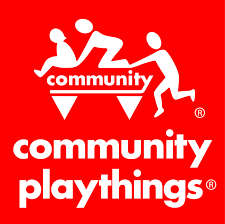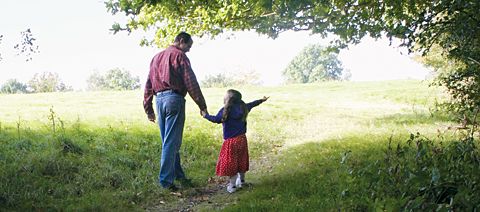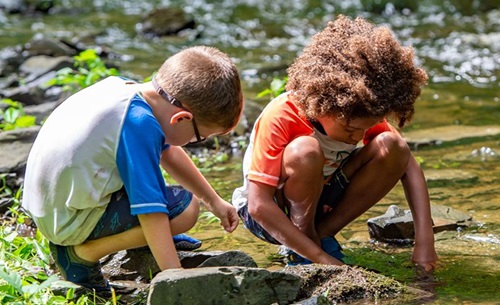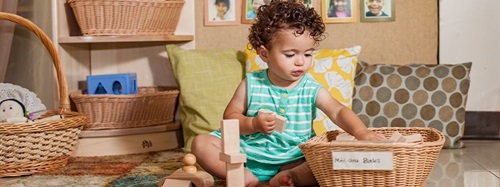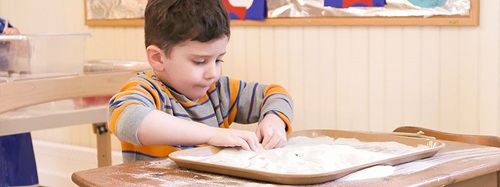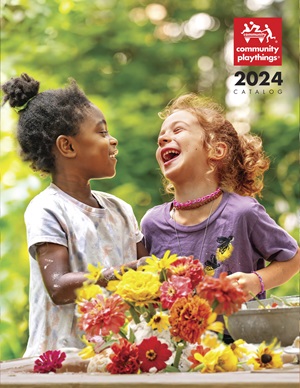Family Partnerships
| November 2009When my daughter was in elementary school, her teacher sent home a checklist for parents to fill in about how we would like to volunteer at the school. I was doing a lot of work at the time with relationships between parents and teachers and volunteered to lead a workshop for parents and/or staff on parent partnerships. I never heard anything back after turning in my checklist. The next year, when I received the form again, I checked off that I would bake. I was called almost every month.
My experience communicated to me that the school really wasn’t interested in having me involved in anything of substance. The unspoken message was “You are a parent and you should know your place (which is making cupcakes). Leave the education to us.”
Early childhood programs are known for their family partnerships. We understand that parents need to be involved in issues of substance. We know that parents are primary, that they are their child’s first teacher, and that the center is there to help strengthen the parent-child relationship. Our role is to support, not supplant the role of parents.
Partnerships with families are like beautifully woven fabric where every thread and every color contributes to the interwoven whole. Just as a masterful weaver artfully brings in all the parts, partnerships are carefully and gently woven relationships initiated by the child care program staff. These relationships grow with each morning greeting, each report at the end of the day, each family conference.
Family partnerships change as children get older. As a child moves from one room to another, the weaving may need to start afresh, although sometimes you can build on the trust already established. With parents of infants, it is all about gaining trust. Most parents are hesitant to turn their precious baby over into someone else’s arms, no matter how competent that caregiver is. Expect that it will take time to earn a parent’s trust. That trust will be earned as you show your competence, but don’t act like you know better than the parent. That trust will be earned as you respond to a parent’s questions as if this was the first time you ever heard those questions. That trust will be earned as you skillfully navigate minor crises – an inconsolable baby or a first bump or bruise. And that trust will be earned as you treat this child like the precious human being he/she is.
With parents of toddlers, partnerships are fostered as you jointly weave your threads through the challenges of toddlerhood – moving from a cot to a crib; getting (or giving )her first bite; learning to use the toilet; learning how to use words to communicate. The grace and kindness with which these challenges are navigated will continue to weave the relationship.
As children become preschoolers, some of the relationship may revolve around helping families understand how we are preparing their children for school. Invite families into the preschool room to participate in and observe:
- how a child develops literacy skills as she tries to write her first letters.
- how a child learns one-to-one correspondence as he hands out cups for snack.
- how a child learns about quantity and volume as she experiments at the sensory table.
These are all invaluable opportunities for partnership. Taking time to answer parents’ questions, and helping them understand how children learn in a classroom that may look much different than the ones they remember, is time well-spent.
Parenting is often not given the value that paid work is given, and yet we all know there is no job more important than raising a child. You can help give the job value by sincerely validating parents for what you see them doing well. Parents often feel unsure of themselves. Just like teachers, some parents may try to cover up their insecurities by acting confident, while others will readily show that they feel challenged. Your warmth and support in nurturing the parents of the children you care for is an important part of your job.
Communication is key. That sounds like a cliché, but it couldn’t be more important. We know this is true in marriages and business partnerships, so why wouldn’t it be so in child care partnerships? It is always better to communicate than not to, even when messages are difficult to relay (“Your child was bitten today” or “Your daughter didn’t seem herself today. I am wondering if there are things you do at home that I could learn from?”) Without communication, your “weaving” will be very thin, and there will likely be holes.
Remember that families include many members, not just mothers. Many of us who teach young children are female and may feel more comfortable interacting with moms. However, dads, grandparents, aunts, or uncles (or whoever the regular pick-up people are) feel part of the family and want to be in the communication loop as well.
None of us is ever listened to enough. Most of us appreciate a listening ear at the end of the day. While often it won’t be possible, don’t underestimate the power of simply listening to a parent who needs to tell you a little about his day before he picks up his little one. Those few minutes of your attention may make all the difference to the ride home.
Bernice Weissbourd (1981) talks about getting to know parents beyond their parental role. Obviously, you will need to interact with family members around their role as parents, but it is helpful if you can also learn something about them as human beings. What do they like to do when not at work? What are their passions? One teacher I supervised knew the names of the family pets of all the children in her classroom. She shared the passion of being an animal lover with those families, and it created an additional bond.
To be a master weaver of parent partnerships, we are required to nurture, build trust, communicate fully and openly, and listen thoroughly. That is a tall order, especially if you are learning the craft of teaching. Most of these skills require you to be confident and self-assured in your role as a teacher in order to nurture both children and parents. If you aren’t there yet, don’t worry – you will get there. In the meantime, seek validation and feedback from your peers and supervisors.
It is crucial to treat parents as competent people who know their children best. Partnerships can be wonderful, creative relationships with the goal of providing the most finely woven experience for each child and for their family.
Reference:
Weissbourd, B. ((1981). Supporting Parents as People In Infants: Their Social Environment. Weissbourd, B. & Musick, J. (Eds.) Washington, DC: NAEYC.
